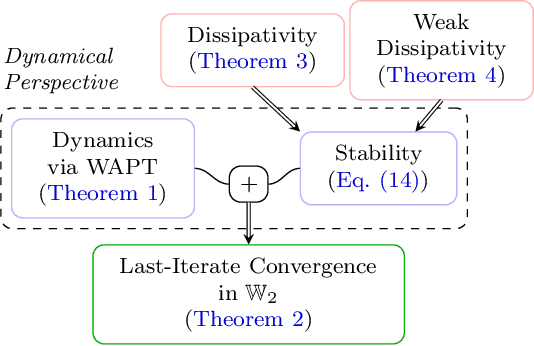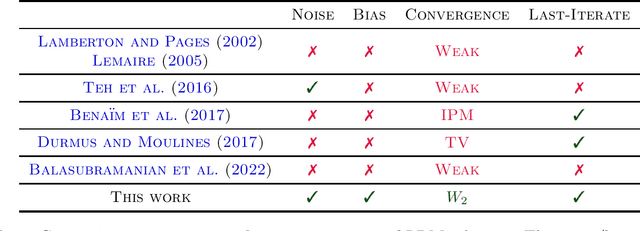A Dynamical System View of Langevin-Based Non-Convex Sampling
Paper and Code
Oct 25, 2022

Non-convex sampling is a key challenge in machine learning, central to non-convex optimization in deep learning as well as to approximate probabilistic inference. Despite its significance, theoretically there remain many important challenges: Existing guarantees (1) typically only hold for the averaged iterates rather than the more desirable last iterates, (2) lack convergence metrics that capture the scales of the variables such as Wasserstein distances, and (3) mainly apply to elementary schemes such as stochastic gradient Langevin dynamics. In this paper, we develop a new framework that lifts the above issues by harnessing several tools from the theory of dynamical systems. Our key result is that, for a large class of state-of-the-art sampling schemes, their last-iterate convergence in Wasserstein distances can be reduced to the study of their continuous-time counterparts, which is much better understood. Coupled with standard assumptions of MCMC sampling, our theory immediately yields the last-iterate Wasserstein convergence of many advanced sampling schemes such as proximal, randomized mid-point, and Runge-Kutta integrators. Beyond existing methods, our framework also motivates more efficient schemes that enjoy the same rigorous guarantees.
 Add to Chrome
Add to Chrome Add to Firefox
Add to Firefox Add to Edge
Add to Edge